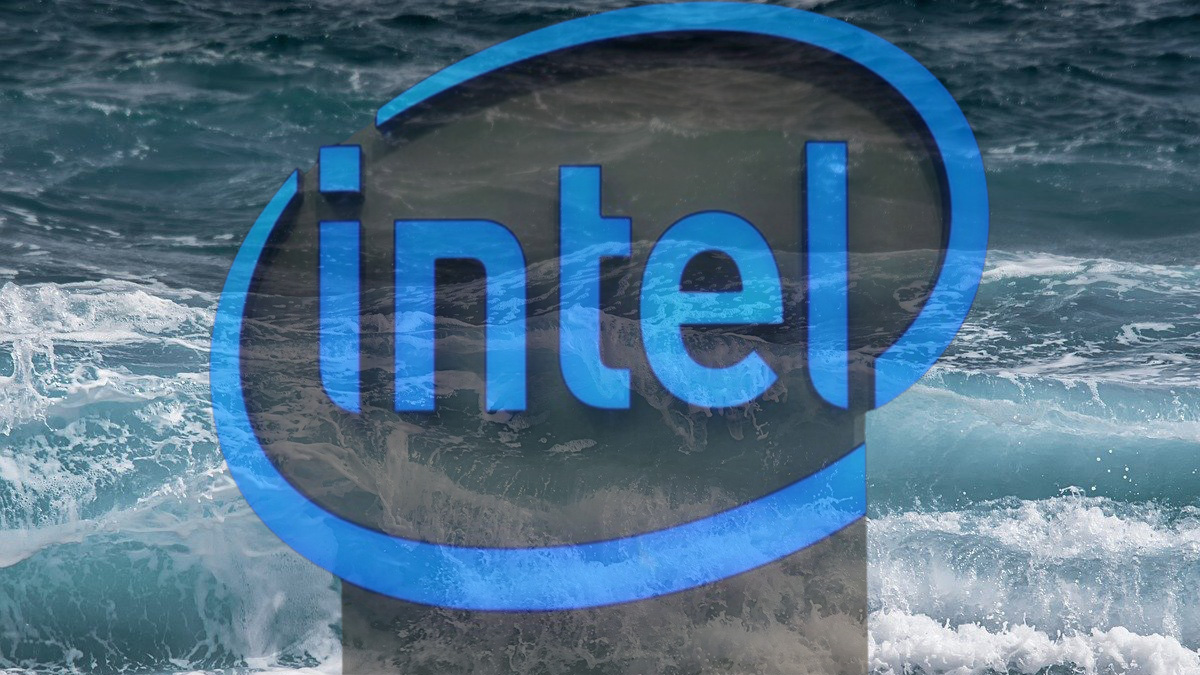Intel Products in China: A Call for Security Review

On Wednesday, the Cybersecurity Association of China (CSAC) raised significant concerns regarding Intel’s operations in the country. They argue that Intel has “constantly harmed” China’s national security and interests. This statement could have far-reaching implications for the tech giant.
Who is CSAC?
While CSAC is not a government body, it maintains strong ties to the Chinese state. This connection gives its statements considerable weight. The association’s accusations against Intel were detailed in a lengthy post on WeChat, a platform widely used in China.
The Accusations
The core of CSAC’s allegations revolves around national security. They claim that Intel’s products pose risks that could compromise sensitive data and infrastructure. Such claims are not new; concerns about foreign technology infiltrating critical systems have been prevalent globally.
Potential Consequences
If these accusations gain traction, they may prompt a formal security review by the Cyberspace Administration of China (CAC). This powerful regulator oversees internet safety and data protection within the country. A review could lead to restrictions on Intel’s operations or even a ban on certain products.
Implications for Business
For Intel, this situation represents a serious challenge. The Chinese market is crucial for many tech companies, including semiconductor manufacturers. Any adverse actions from Chinese regulators could significantly impact sales and reputation.
Broader Context
This incident highlights ongoing tensions between the U.S. and China over technology and cybersecurity issues. As countries become more protective of their digital borders, firms like Intel must navigate complex regulatory landscapes carefully.
Intel’s Commitment to Product Safety and Quality in China
On Thursday, Intel’s China unit made a significant announcement regarding its unwavering focus on product safety and quality. In a statement shared via their official WeChat account, the company emphasized its dedication to these crucial aspects.
Prioritizing Safety
Intel has always placed product safety at the forefront of its operations. This commitment is not just a corporate responsibility; it’s a promise to consumers. Ensuring that every product meets rigorous safety standards is essential for maintaining trust.
Open Communication
The company highlighted its intention to maintain open lines of communication with relevant authorities. This proactive approach allows Intel to address any concerns swiftly and effectively. Transparency is key in building strong relationships with regulators and customers alike.
Reaffirming Commitment
In their statement, Intel reiterated its pledge to uphold high standards of quality. This assurance is vital in an industry where technology evolves rapidly. Consumers need confidence that the products they use are safe and reliable.
Intel Faces Scrutiny Amid Tech Sell-Off
Intel’s shares dipped 1.5% on Wednesday, reflecting a broader trend in the tech sector. This decline came after a disappointing update from ASML, a key player in chip equipment manufacturing. Investors are feeling jittery, and the market is reacting.
In the midst of this turmoil, the Cybersecurity Administration of China (CSAC) has raised concerns about Intel’s products sold in China. They recommend initiating a network security review. This move aims to protect China’s national security and safeguard the rights of Chinese consumers.
The implications are significant. A thorough review could impact Intel’s operations and sales in one of its largest markets. As tensions rise between global tech giants and regulatory bodies, companies must navigate these challenges carefully.
Intel has not yet responded to requests for comments regarding CSAC’s recommendations or the recent stock performance. Investors will be watching closely for any updates that may influence market sentiment.
The Implications of China’s Security Review on US Tech Giants
Last year, the Chinese government took a significant step by barring domestic operators from purchasing products made by Micron Technology Inc. This decision came after a security review deemed Micron’s offerings as inadequate for network security. The ramifications of this move are profound, not just for Micron but for the entire tech landscape.
Micron, a key player in the memory chip market, found itself facing restrictions that could stifle its growth in one of the world’s largest markets. With China being a major consumer of technology products, losing access to this market can have dire consequences. Companies like Micron rely heavily on international sales to bolster their revenues.
Now, Intel is under scrutiny as well. A similar security review could be looming over its products. Last year, over 25% of Intel’s revenue came from China. If Intel faces restrictions akin to those imposed on Micron, it could lead to substantial revenue losses.
The stakes are high for both companies. For Micron, the challenge is immediate and pressing. For Intel, the potential fallout is more speculative but equally concerning.
This situation highlights a growing trend: national security reviews are becoming a tool for governments to influence market dynamics. As tensions rise between nations, tech companies must navigate an increasingly complex landscape filled with regulatory hurdles.
For consumers and businesses alike, these developments may lead to increased prices and reduced options in the marketplace. Companies will need to adapt quickly or risk falling behind competitors who can maneuver through these challenges more effectively.
Backdoor Allegations: A Growing Concern
The recent backdoor allegations against China have stirred significant debate. These claims emerge amid heightened tensions between the U.S. and China, particularly regarding technology access.
As the U.S. ramps up efforts to limit China’s access to vital chipmaking equipment, these allegations take on added weight. Washington argues that restricting technology is essential to prevent the modernization of China’s military capabilities.
Dan Coatsworth, an investment analyst at AJ Bell, highlights the fragility of U.S.-China relations. He warns that increased talk of trade restrictions could lead to retaliation. This tit-for-tat dynamic can escalate quickly, affecting global markets and economies.
The implications are far-reaching. If backdoor access is confirmed, it could strain diplomatic ties further. Trust between nations is already low; such revelations could plunge it into deeper uncertainty.
For businesses and investors, this situation demands vigilance. The tech sector is particularly vulnerable as supply chains are disrupted by geopolitical tensions. Companies must assess their exposure to risks stemming from these allegations.
Intel’s Vulnerabilities: A Wake-Up Call for AI Security
In a recent statement, the Cyber Security Advisory Committee (CSAC) raised alarms about Intel chips, particularly Xeon processors used in artificial intelligence tasks. The committee claims these chips harbor significant vulnerabilities that could jeopardize product quality and security management. This situation reflects an extremely irresponsible attitude towards customers.
The Backdoor Threat
CSAC specifically points to operating systems embedded in all Intel processors. They allege these systems contain backdoors created by the U.S. National Security Agency (NSA). This revelation is alarming, as it poses a considerable security threat to critical information infrastructures worldwide, including nations like China.
National Security Risks
The implications are severe. CSAC warns that using Intel products could endanger national security across various countries. With such vulnerabilities, the integrity of sensitive data and operations is at stake.
Impact on the AI Market
A potential ban on Intel products—whether temporary or permanent—could tighten the supply of AI chips in China. The Chinese market has been struggling to find alternatives to Nvidia’s cutting-edge offerings, which currently dominate globally but face export restrictions to China.
Despite these challenges, Intel has managed to secure orders for its Xeon processors from several Chinese state-linked agencies for AI applications this year. However, with growing concerns over security and reliability, how long will this trend continue?







